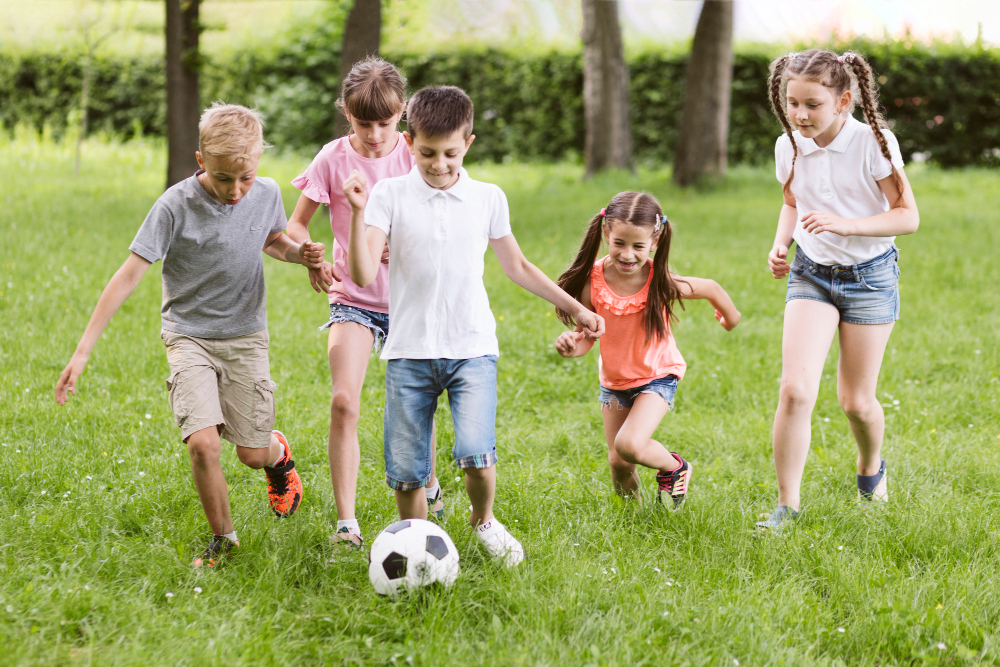Making friends at the primary school level is one of the essential social skills for a child to develop, and that gets carried throughout their lives. As a parent, enrolling your child in the best international school in Singapore will not end your job, but you will also play a significant role in helping your child come out of the shy zone and make friends.
Although some children are naturally outgoing, shyness and anxiety can block a few kids from developing friendships. Still, it is one of those aspects you can help your children to overcome.
Why Are Friendships Necessary for Your Kid?
- Friendships help kids grow emotionally and morally and enhance community skills.
- Friendships help kids build self-esteem, societal interaction, and assurance.
- Positive friendships act as a protective shield against bullying, harassment, and abuse.
- Strong friendships teach healthy collaboration skills.
- Healthy companies empower by providing a sense of belonging and own identity.
- Companies develop healthy peer pressure that turns positive, especially if kids encourage others to build interest in volunteering and social justice.
- Being friendly helps kids get along with other people and confidently sort out conflicts and problems independently.
- Friendships are critical in helping children improve their communication, sharing, compassion, problem-solving, and imagination.
Why Can Your Kid Not Make Friends at an Early Age?
Before understanding how to make them social, let us go through why some cannot make friends.
- Lack of interpersonal skills
- Dominant or aggressive attitude
- Shy, nervous, and anxious nature
- Disciplined and strict home
How to Find out Whether Your Child Has Issues Making Friends?
You need to observe their activities on a timely basis, and below are a few common traits of a socially awkward child:
- It avoids conversation with outsiders.
- Wants to stay indoors most of the time.
- Becomes overwhelmed by a crowd of people.
- Hides from attention or stage fright.
- Easily embarrassed.
- Spends playtime at school alone.
How Can You Nurture Your Child’s Friendships?
Every child is different. It is necessary as a parent to understand your kid in the first place and support them however they are to come up with a plan. You should never push or force your kid onto anything. Every progress in your kid has to be gradual.
Start with Small Steps
Observe and analyse your kid at home and identify their behavior alone and within the same age group.
Build Conversation Skills and be a Conversation Starter
Be a friend and initiate a conversation with them. Please encourage them to start essential discussions from a very young age.
Work on Listening Skills
Improve your listening skills and be all ears while your kids start speaking to understand their thoughts. Motivate them to listen to others while they speak.
Look for Opportunities to Meet Peers
Call on other kids at home and attend kids’ gatherings whenever feasible.
Don’t Compare Your Child with Others
Never compare your kids with others. Every child is gifted and possesses unique qualities. Comparisons highly demotivate young minds.
Become Role Models
Practice before you preach. Kids consider their parent’s role models and behave exactly how their parents behave.
Attend Teacher’s Meeting
Have regular meet-ups with the school teacher to know their behavior at school and interact with peers.
Enrollment in a Top Primary School
Do thorough research before enrolling your kid in a school that offers solid elementary education and builds life skills.
Conclusion
A kid can learn any skill over time. Constant Encouragement and support from parents and teachers can do wonders in a child’s life. You can find the best international schools in Singapore and top primary school that encourage the overall development of kids.
For more blogs click here.







